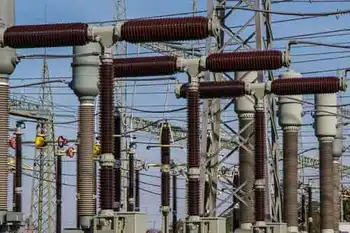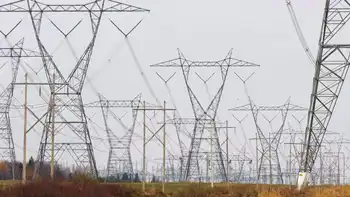Con Edison Urges Customers to Sign Up for e*bill and Help Plant Trees
NEW YORK - As New Yorkers continue to opt for environmentally friendly ways to live, Con Edison is promoting a new incentive for customers to pay their utility bills online without the wasteful use of paper. For every customer who enrolls Con Edison's e*bill program, the company will donate $1 to help plant trees in New York City and Westchester County.
The Con Edison e*bill program is a fast, convenient and environmentally friendly payment option in which customers can receive, view and pay bills online. Each month, Con Edison notifies customers via e-mail when bills are ready for viewing. Switching to e*bill is easy. Visit www.conEd.com/ebill to learn how to "leaf" your paper Con Edison bill behind.
As an added incentive, Con Edison will donate $1 for every customer who signs up for the e*bill program to a nonprofit tree planting fund. For customers living in New York City, the company will donate to Trees New York, and for customers living in Westchester County, donations will be sent to Friends of Westchester Parks, Inc.
"This is a prime opportunity for customers to sign up for the e*bill program," said Marilyn Caselli, senior vice president of Customer Operations. "It's an easy way to cut down on paper consumption and save trees by opting to receive and pay your bills electronically."
Recent studies show that if all U.S. households viewed and paid their bills electronically, it would save 18.5 million trees* - avoiding 2.2 billion tons of toxic air pollutants, 1.7 billion pounds of solid waste, and saving 15.8 billion gallons of precious water.
For more information on how to get involved with a tree planting group in New York City and Westchester County log onto www.treesny.com or www.friendsofwestchesterparks.c om.
Related News

Coal demand dropped in Europe over winter despite energy crisis
PARIS - The EU burned less coal this winter during the energy crisis than in previous years, according to an analysis, quashing fears that consumption of the most polluting fossil fuel would soar as countries scrambled to find substitutes for lost supplies of Russian gas.
The study from energy think-tank Ember shows that between October 2022 and March 2023 coal generation fell 27 terawatt hours, or almost 11 per cent year on year, while gas generation fell 38 terawatt hours, as consumers cut electricity consumption in response to soaring prices.
Renewable energy supplies also rose, with combined wind, solar and hydroelectric output…




